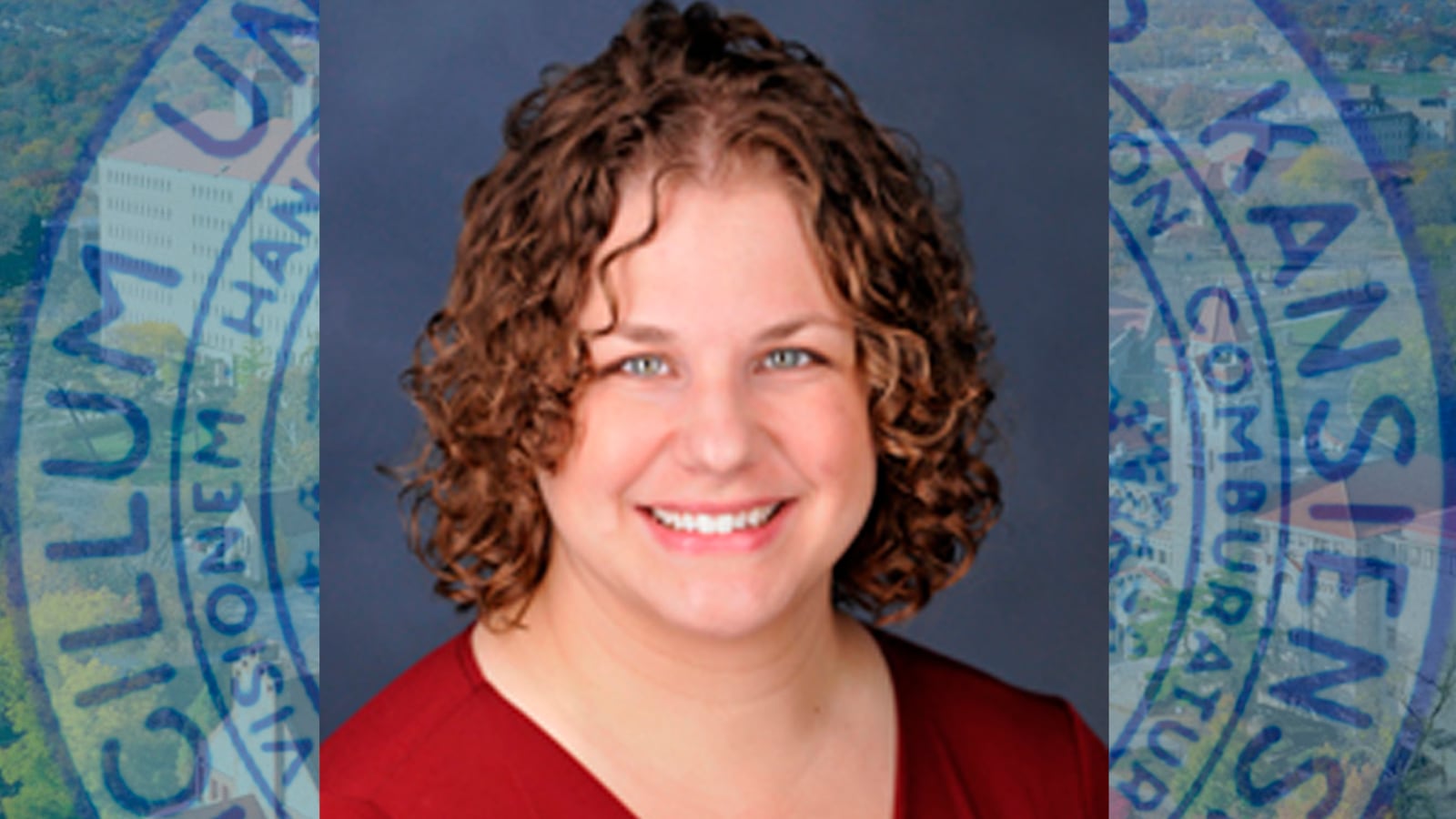The movement to purge all offensive speech from American college campuses has claimed another scalp. Andrea Quenette, an assistant communications professor, was chased out of her own classroom—not because she was a bad teacher, but because her students said she wasn’t agreeing with them quickly enough.
For months, Quenette has been under investigation by the University of Kansas. She is on academic leave. Her students’ refusal to return to class left her no other choice but to take the semester off.
The Foundation for Individual Rights in Education (FIRE), which stood up for Quenette’s free-speech rights back in November when she was first accused of racial discrimination, is sick of waiting for KU to clear her of wrongdoing.
“The longer Quenette has to wait for what should be a fundamental affirmation of her rights as a professor, the more deeply speech will be chilled at KU,” FIRE Associate Director Peter Bonilla wrote in an email to The Daily Beast.
You would think that Quenette must have perpetrated an egregious act of harassment or obvious discrimination to provoke her students to publish an open letter demanding her immediate termination. The letter, written by five of Quenette’s students—some, but not all of them, black—alleges that Quenette violated the university’s policies prohibiting racial discrimination. Images of the professor disparaging minority students, or giving them lower grades, come to mind.
But Quenette did nothing of the sort. What she did was make the mistake of using the n-word—during a discussion in which she was admitting her own shortcomings about race. She didn’t use the word maliciously: She was, quite literally, checking her privilege. Isn’t that exactly what far-left students want from their classmates, administrators, and professors?
Not unless one checks one’s privilege using carefully planned-out, politically correct language, it seems. Here was Quenette’s micro-aggressive remark—which she made during a discussion about how to talk about racial issues on campus—according to the students:
We students in the class began discussing possible ways to bring these issues up in our classes when COMS 930 instructor Dr. Andrea Quenette abruptly interjected with deeply disturbing remarks. Those remarks began with her admitted lack of knowledge of how to talk about racism with her students because she is white. “As a white woman I just never have seen the racism… It’s not like I see ‘Nigger’ spray-painted on walls…” she said.
Quenette later clarified in an email to Inside Higher Ed that “I did not call anyone this word, nor did I use it to refer to any individual or group. Rather, I was retelling a factual example about an issue elsewhere.” The exact phrasing she used is disputed.
But she did not use inappropriate language to describe any of her students—or to describe anyone else. She was describing her own blindness to racial animus. Could she have used different language? Sure. Should she have? Probably. But genuine self-reflection isn’t usually rehearsed. This wasn’t a public address—it was a classroom discussion about a controversial topic. Some imprecision should be expected, and tolerated.
One can hold the position, I suppose, that it is never OK to utter the n-word, even in a merely explanatory way. I would argue that doing so gives the word additional power to inspire fear, like saying “You Know Who” instead of “Voldemort.” Wendy Kaminer, a lawyer, feminist, and former board member of the American Civil Liberties Union, argues persuasively that there is an “obvious difference between quoting a word in the context of discussing language, literature or prejudice and hurling it as an epithet.”
In any case, given that Quenette’s intention was to shed light on her own lack of experience with racism, rather than to offend her students, it seems like a simple apology and promise to be more cautious with hurtful words ought to have sufficed.
Quenette’s use of the n-word, however, was not her students’ only complaint. She also suggested that students were dropping out of KU not because they were victims of racism or felt threatened on campus, but because of their low grades. Uh oh.
The students wrote:
This statement reinforces several negative ideas: that violence against students of color is only physical, that students of color are less academically inclined and able, and that structural and institutional cultures, policies, and support systems have no role in shaping academic outcomes. Dr. Quenette’s discourse was uncomfortable, unhelpful, and blatantly discriminatory.
The letter goes on to describe Quenette’s conduct as “morally abhorrent,” “dangerous,” and “racially violent.” The students demanded her immediate termination on grounds that her very presence was making the campus unsafe for persons of color. Again, Quenette is a communications professor—one making a good-faith effort to understand her students’ emotional pain—not the grand wizard of the Ku Klux Klan.
Quenette’s remarks are defensible on the usual free-speech grounds: Public universities are bound to follow the First Amendment, and faculty and students have every right to engage in controversial and offensive expression. By launching an investigation into her behavior, KU is chilling her speech.
What’s more, even deeply disturbing statements can serve an educational purpose. If someone is saying something wrong, or offensive, on campus, the solution is to call them out for it. Everyone will walk away from the exchange a little smarter.
Quenette made statements about phenomena she had witnessed. That’s all. Those statements might be wrong, but how can anyone figure out if they are wrong if they are un-sayable in the classroom?
Furthermore, if it’s offensive and racially discriminatory to use the n-word in any context—even an observational, apologetic, I-don’t-suffer-abuse-from-this-word context—aren’t Quenette’s students guilty of the same crime? After all, they used the word, too: in their open letter.
Perpetually offended students are engaged in a campaign of repression against faculty members who bother them. Their victims include: Teresa Buchanan, an instructor who was fired used for using adult humor and language in class (gasp!); Professor Laura Kipnis, who was subjected to a witch hunt for disagreeing with modern feminists; Erika Christakis, whose indifference to offensive Halloween costumes provoked the mob; and countless others whose ordeals have inspired fewer headlines. What will happen when no one is left on campus to tell students they might just be wrong?
They will have gotten exactly what they want.
“KU students are demanding that the university end academic freedom in any meaningful sense of the term,” wrote Bonilla.





